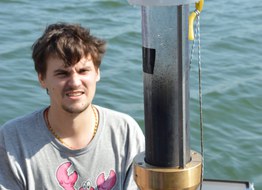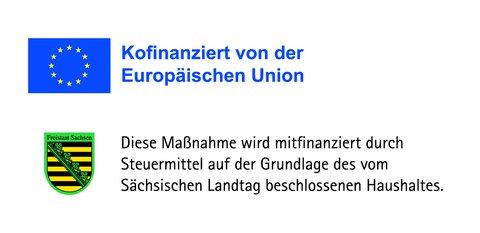THETA - Thermal utilization of open mining pit lakes
A joint project between the Institute of Hydrobiology, the Institute of Water Chemistry and the Institute of Hydraulic Engineering and Technical Hydromechanics.
Project management: Prof. Dr. Thomas Berendonk
Project coordinator: Dr. Johannes Feldbauer
Research assistants: Dr. Sophia Schumann, Dr. Carolin Dittrich
Funding: SAB – EFRE/JTF
Duration: 07/2025 – 06/2027
The Lusatia region of Saxony is characterised by lignite mining and the resulting opencast lakes. In addition to their use for tourism, these artificial bodies of water offer the opportunity to utilise lake thermal energy. This innovative technology, which has hardly been used to date, involves using lakes as a source of heat or cooling. Water is pumped from deep layers, which have a relatively constant temperature throughout the year, and passed through heat exchangers. The heat or cold energy stored in the water can then be used for heating, producing hot water, or cooling with the aid of heat pumps. Due to its low CO₂ emissions, this technology can contribute to an environmentally friendly energy supply, which is particularly important following the phase-out of coal mining in the study area.
For the first time, the THETA research project will present the potential for the thermal utilisation of Lusatian lakes in Saxony in the form of a cadastre. The ecological, chemical and hydraulic aspects of thermal utilisation are being investigated at Lake Bärwalder See to inform recommendations for the development and management of water bodies.
The project is being coordinated by the Institute of Hydrobiology. Various physical and ecological aspects of water quality are being examined before and after the commissioning of the pilot plant in order to document and analyse potential impacts on the ecology of the lake ecosystem. Additionally, water ecology is being modelled using the obtained data to simulate and analyse different usage scenarios. These analyses will be used to determine whether and to what extent using lake thermal energy affects water quality.
 © Björn Grüneberg
© Björn Grüneberg
member of scientific staff
NameDr. Johannes Feldbauer
Ecosystem Modelling
Send encrypted email via the SecureMail portal (for TUD external users only).
Visiting address:
Drude-Bau, 1. OG Raum 71 Zellescher Weg 40
01217 Dresden
Postal address:
TUD Dresden University of Technology
Department Hydrosciences
Institute of Hydrobiology
01062 Dresden
Parcel address:
TUD Dresden University of Technology Institute of Hydrobiology Sekretariat, 1.OG Raum 60/61 Zellescher Weg 40
01217 Dresden

